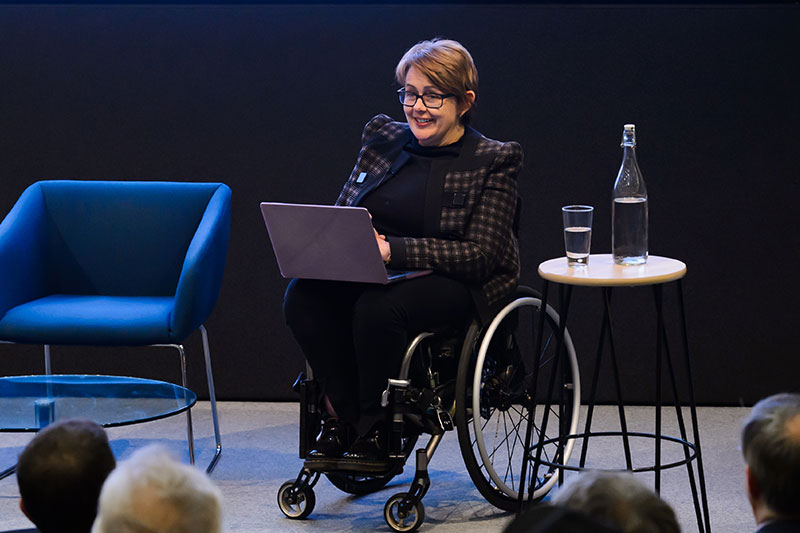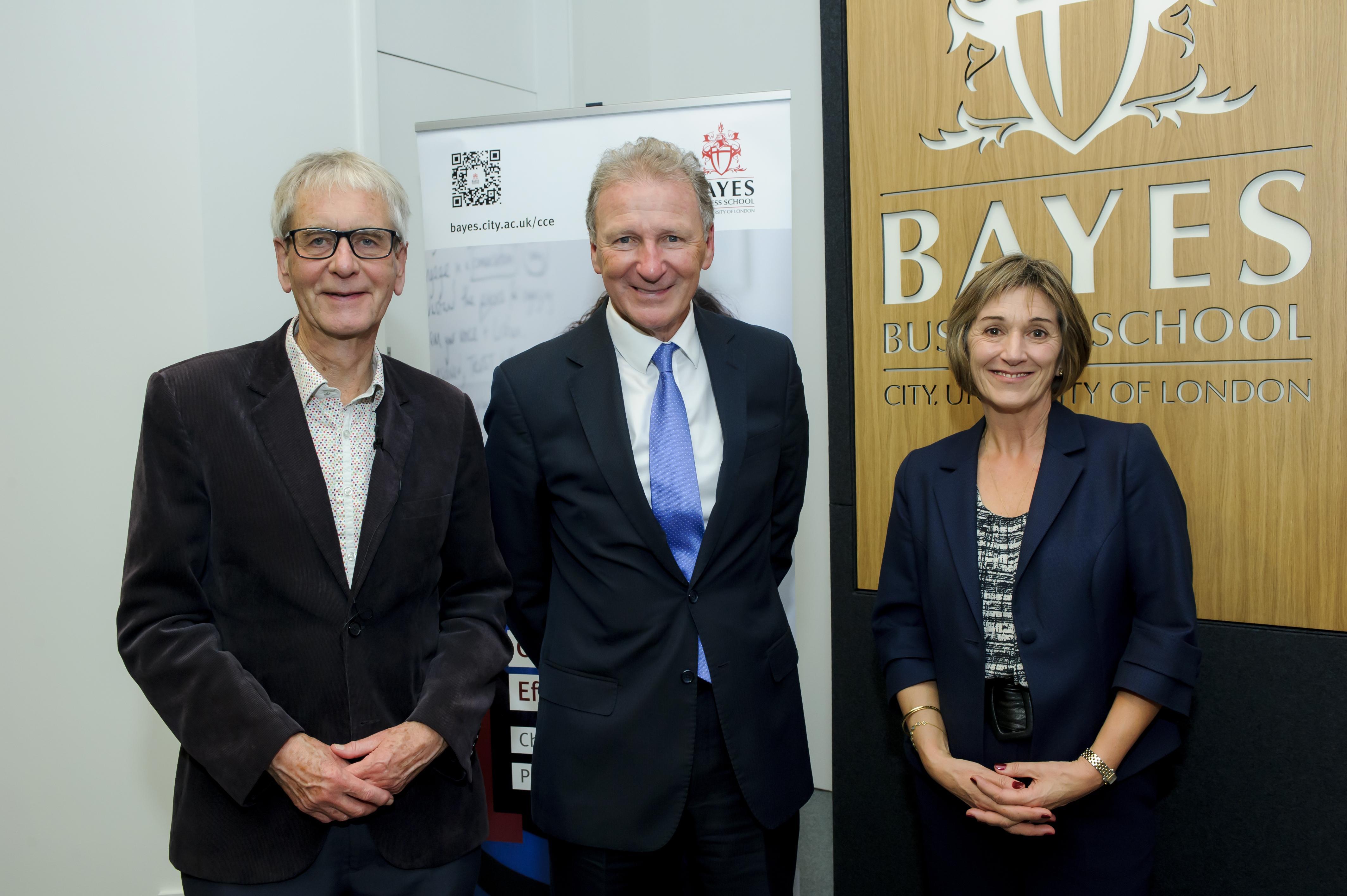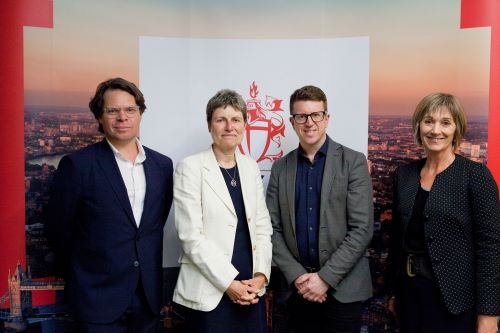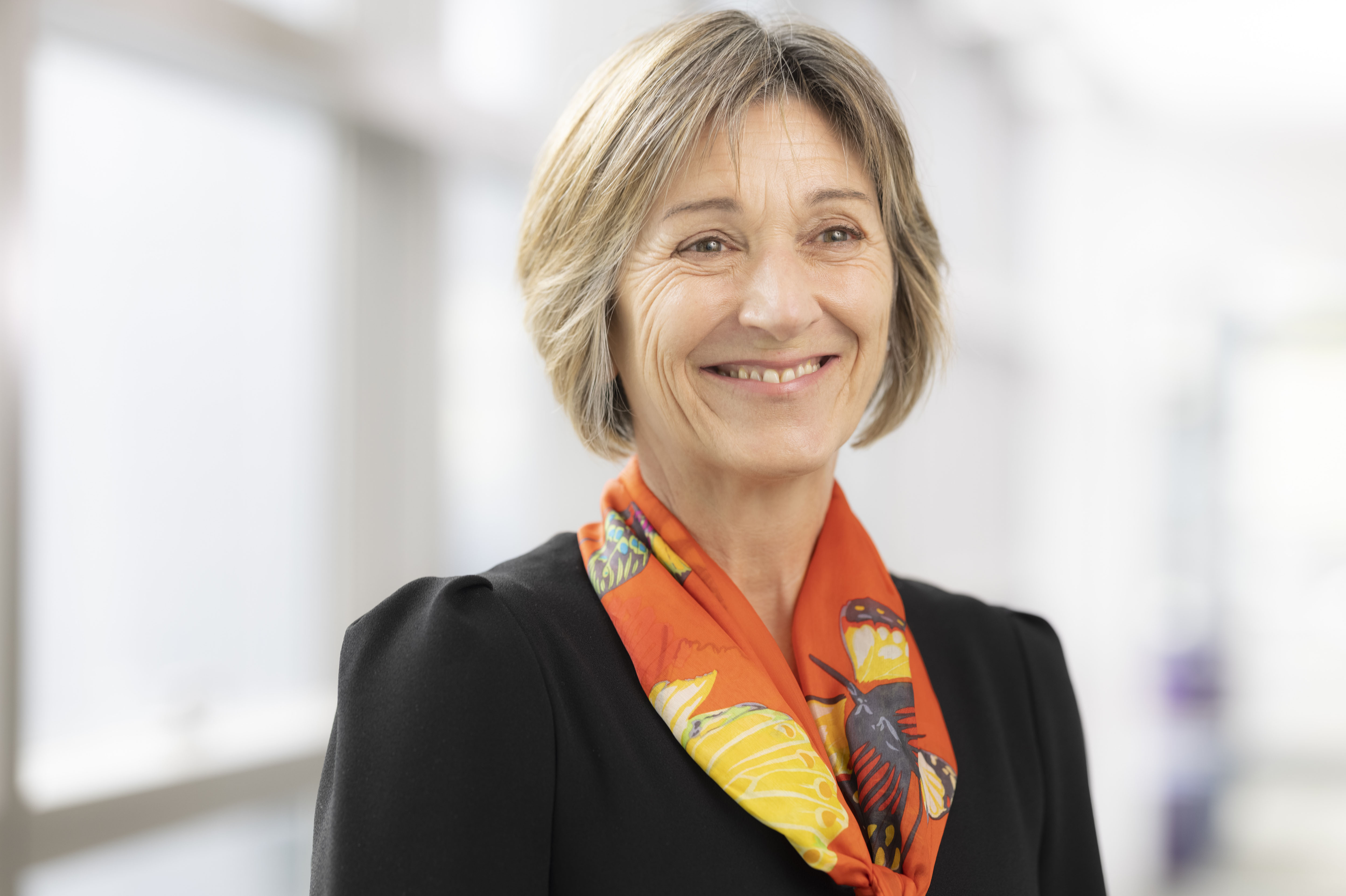By Eve Lacroix (Communications Officer), Published
“My career wouldn’t exist without volunteers,” says Baroness Tanni Grey-Thompson, one of Britain’s most illustrious sportspeople.
The comment came as she delivered a talk on the topic ‘The power of sport and volunteering’ earlier in May at Bayes Business School (formerly Cass). The event came as part of the flagship Charity Talk series which is hosted by the Bayes Centre for Charity Effectiveness (CCE).

Throughout her sporting career, Tanni won 16 Paralympic medals (11 of them gold), 13 World Championship medals, and won the London Marathon six times. Since retiring from professional sports, she has become a crossbench peer in the House of Lords and remains actively involved in sports as a volunteer.
“Sports and politics are inextricably linked. The medal table is about who is the best country in the world,” she says.
“There is a challenge in how much we expect from volunteers – we need to recognise the chain of coaches that help our athletes.”
Her presentation was followed by a response by Dr Justin Davis Smith CBE, Director of the charities master’s programmes at Bayes CCE and author of the London 2012 Olympic and Paralympic volunteering strategy.
The event came nine days after the coronation of King Charles III, which saw over six million people volunteering in the UK as part of the ‘Big Help Out’ weekend initiative.
“The contribution of volunteering to the British economy is undervalued,” says Alex Skailes, Director of the CCE. “We need more volunteers and more recognition for the role they play in society, from the NHS to foodbanks, museums and concert halls, to grassroots and elite sports.”
“The topic of volunteering is both my passion and what I do for a living. This was the only room to be in,” says audience member George Fielding BEM, who works as a Policy and Public Affairs Officer at the nonprofit organisation Volunteering Matters. “Volunteering saves lives and keeps society afloat and tonight’s event has given legitimacy to what we do.”
Fellow audience member Sarah Jones (MSc Voluntary Sector Management, 2016) runs the coaching and charity consultancy GoodThinkingJones. She travelled from Liverpool down to London to attend the talk. “I love coming to these talks and always get to meet interesting and exciting people,” says Sarah.
Sports and volunteering have the power to change the world
For Tanni, volunteering holds a special place in her career and life – she described hosting a dinner to thank the people that had supported her in her sporting career. Some 58 of the 60 invitees were volunteers.
While she has retired from competing, she remains heavily involved in sports as a volunteer. She is a member of the Laureas Sport for Good Foundation, which was founded under the patronage of Nelson Mandela with the founding belief that “sport has the power to change the world.” The organisation is run by ex-athletes who raise money to put back into sport.
With Laureas, Tanni travelled to Rwanda to support a volleyball project and had what she describes as a “life-changing” experience of the power of sport. Many of the men playing volleyball were amputees who had once fought in opposing sides of the Rwandan civil war. Through the sport, they were “coming back together in an extraordinary way”.
The benefits of volunteering
We have to think about what we want from sport. Do we want to do sport for sport’s sake? Or do we want to do sport for medals?
For Tanni, there are many benefits to volunteering: “Engagement, connection, but also being physically active!”
She noted some of the challenges in the world of sports and volunteering: in today’s cost-of-living crisis, some families are questioning whether they can afford to keep their children active and in after-school sports activities.
Many people that were previously active volunteers dropped out during the pandemic and the number of people volunteering has not returned to pre-Covid levels.
Volunteering has changed a lot over the past two decades and volunteers are becoming professionalised.
“Volunteering can be thankless, but I want volunteers to know that they are making a massive difference in people’s lives,” Tanni added.
Reclaiming the cult of the amateur
For Justin, aiming to professionalise sports is not the best way forward. “We must reclaim the cult of the amateur and instead organise volunteering around enthusiasm,” he says.

A healthy society is dependent on soft infrastructures such as schools, libraries, sports clubs and leisure centres, which in turn builds social capital.
He noted that almost all sport is run by volunteers and provided the examples of the volunteer-run advisory boards of professional football teams and of the informal Park Runs throughout the UK.



